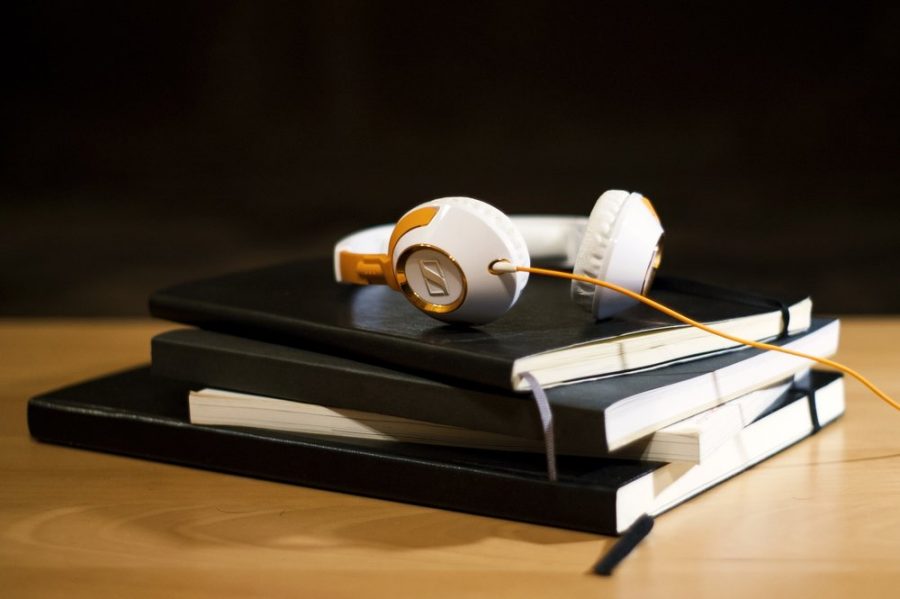Two Sides of the Debate: Studying with Music
October 10, 2018
“Two Sides of the Debate” is a new series we at the Ridge Review are starting to compare the differing opinions of students on problems/topics within the school. Each perspective is written by a different student, and will soon come to involve students outside of newspaper, so please email us at [email protected] if you are interested in contributing to the series. For the first article of the series, we discuss the debate on studying while listening to music. Vote for which side you agree with using the poll to the right!
Studying With Music
For–Kate Ourada
Doing your homework can be incredibly monotonous, even if you enjoy the class or the subject it’s centered around. The ideal way to ensure that you stay focused and keep your mind from drifting every few minutes is by adding music to your study time.
Everyone has had days where you are certain you can not spend another second doing endless word problems or annotating yet another article, but plugging in your headphones and putting on the perfect study playlist can keep you from chucking your math notebook off a bridge.
I have to regularly study as an AP student and it is so easy to find your attention drifting every few minutes when you have to do the same thing over and over. My solution has been to play background music to keep myself engaged. I’ve also found that it calms me down and allowed me to focus on the task at hand. It acts as a signal to my brain that now it’s time to work.
Some people don’t like to listen to music while they study, but I am a firm believer that is because they haven’t found the right music yet. Personally, I’ve found that instrumental, soft acoustic, or music that I listen to a lot work really well for me, but I can’t listen to anything like rap or broadway soundtracks or any song that is words dense because I start trying to pay attention to what they are saying. However, I listen to a really wide array of music, so I’ve had a chance to figure out what works for me. If you only listen to one or two kinds of music and you find yourself even more distracted than you originally were doing homework in silence, then it’s likely time to try something else.
The type of music you listen to may also change based on what you’re working on. For example, I can write news articles to pretty much any kind of music, but not essays. To write a strong essay, I have to have acoustic music without too many lyrics. It keeps my attention from drifting without causing that drift in the first place.
When it comes down to it, that’s the balance you’re looking for: something to keep your brain engaged without becoming a distraction from what your working on.
Against–Laya Reddy
Although listening to music while studying can be tempting, it might be better to resist it. Music, while seemingly improving focus, can actually be very distracting and decrease the quality of work.
A study done by the Cardiff Metropolitan University found that students who tested in quiet environments performed more than 60% better than students who listened to music. These statistics are mirrored in several other studies; students’ performance on exams is compromised when distracted by music.
Much of the debate over music, though, is dependent on the type of music you choose to listen to. Lyrical music has been proved to be disadvantageous when reading, writing, or memorizing, simply because the words in the music get jumbled with the words in the text. Loud music, also, can be incredibly distracting, as it requires extra brain power to interpret it, in addition to the already grueling process of analyzing the study material. Smooth, classical music, however, can be beneficial in boosting people’s moods and making them more perceptible to learning new material.
Even in the case that you find music that helps you focus and perform better on your homework, there’s still a downside- you don’t get to listen to music when you test. Based on an idea called context-dependent learning, retention of information is improved when the context present at memorization and retrieval are similar. For example, when preparing for the SAT, students often study and take practice tests at a desk in a cold environment to stimulate the circumstances on testing day. This also applies to music. If you listen to music while you study, but aren’t allowed to listen to it while completing a test, you will not reap the same benefits as you did when listening to music, and with a different situation and environment, you may perform worse.
Listening to music tends to have short-term effects. Studies have shown that the “Mozart Effect,” the belief that listening to music will make people perform better on mental tasks, is a myth. Those effects only last ten to fifteen minutes, but afterwards, the mind returns to its original state, prone to distraction.
Next time you’re doing your homework, reconsider pulling out your headphones, because listening to music may be more disadvantageous than beneficial.

















